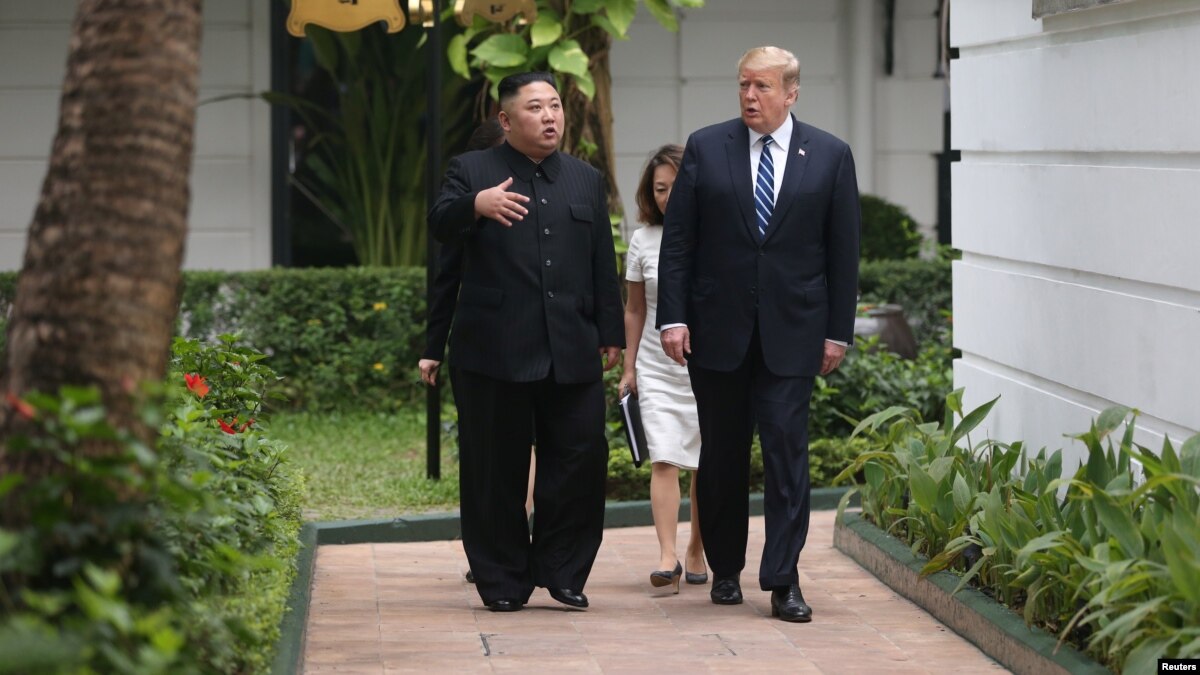
North Korean leader Kim Jong Un left open the possibility of denuclearization during his meeting Thursday with U.S. President Donald Trump.
“If I’m not willing to do that, I wouldn’t be here right now,” Kim said in response to a question from reporters in Hanoi, Vietnam.
When asked if he is willing to take concrete steps toward denuclearization, Kim said that is what is under discussion.
Trump said the two leaders are having “very productive discussions” and that he thinks the relationship between the two sides is better than it has ever been.
“I think no matter what happens we’re going to ultimately have a deal that’s really good for Chairman Kim and his country and for us.I think ultimately that’s what’s going to happen,” Trump said.
Both Trump and Kim also expressed a favorable view of the possibility of North Korea allowing the United States to open an office in Pyongyang.
“It’s actually not a bad idea,” Trump said, after the prospect was raised by a reporter.
“I think that’s something which is welcomeable,” Kim said.
Earlier at the start of their meetings Thursday, Trump expressed a position of patience when it comes to the nuclear talks with North Korea.
“What’s important is we get it right,” Trump said.
Trump predicted longterm “fantastic success” when it comes to North Korea, saying the country will be “an economic powerhouse.”
Kim noted the attention the summit is garnering, likening it to a fantasy movie while saying he will do his best to “bring a good result.”
Trump indicated just prior to a Wednesday evening dinner with Kim that he would hold a news conference Thursday to discuss the outcome of his talks with the North Korean leader.
The summit began Wednesday with handshakes in front of a backdrop of American and North Korean flags and Trump denying that he has walked back his pledge to denuclearize the Korean peninsula.
Asked by a reporter if they would declare a formal end to the Korean War, which was halted with an armistice in 1953, Trump replied: “We’ll see.”
While some U.S. officials have attempted to lower expectations for the outcome of the second summit, Trump is under pressure to extract something beyond the vague commitment made by Kim last June in Singapore on pledging to give up his nuclear weapons and ballistic missiles in exchange for a lifting of crushing international sanctions on the impoverished country.
The Singapore summit was hailed as a historical event as Washington and Pyongyang have never had diplomatic relations. When Trump took office there were fears of a renewed war with North Korea as the U.S. president threatened to unleash “fire and fury like the world has never seen” on the northeast Asian country in response to its threats against the United States and its allies.
U.S. intelligence officials remain skeptical that Pyongyang intends to follow through on Kim’s Singapore pledge to denuclearize.
Director of National Intelligence Dan Coats told a congressional panel last month that North Korea “has halted its provocative behavior” by refraining from missile tests and nuclear tests for more than a year. “As well, Kim Jong Un continues to demonstrate openness to the denuclearization of the Korean Peninsula.”
Despite the end to testing, Coats cautioned that “we currently assess that North Korea will seek to retain its (weapons of mass destruction) capabilities and is unlikely to completely give up its nuclear weapons and production capabilities.”

No comments:
Post a Comment